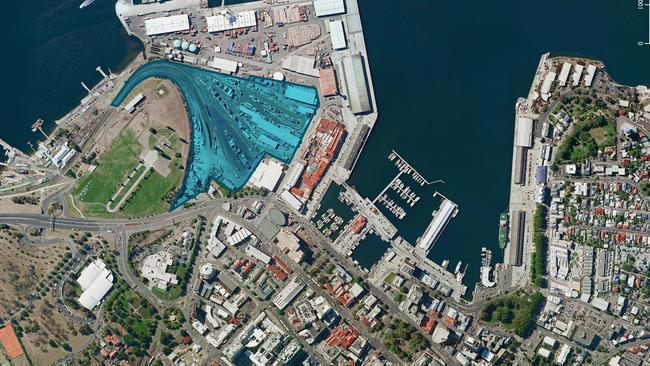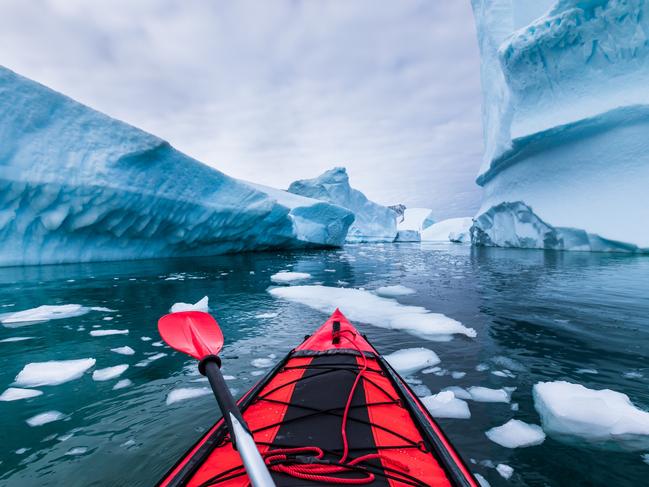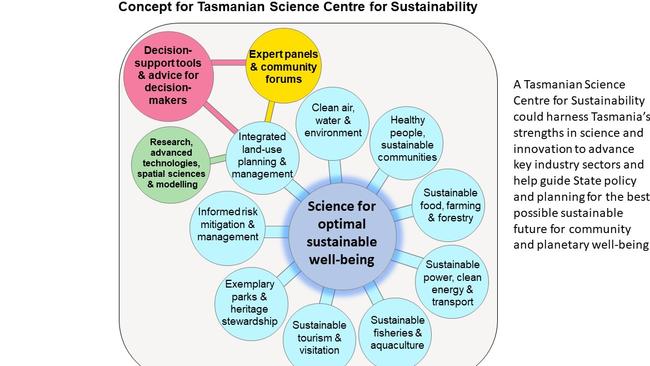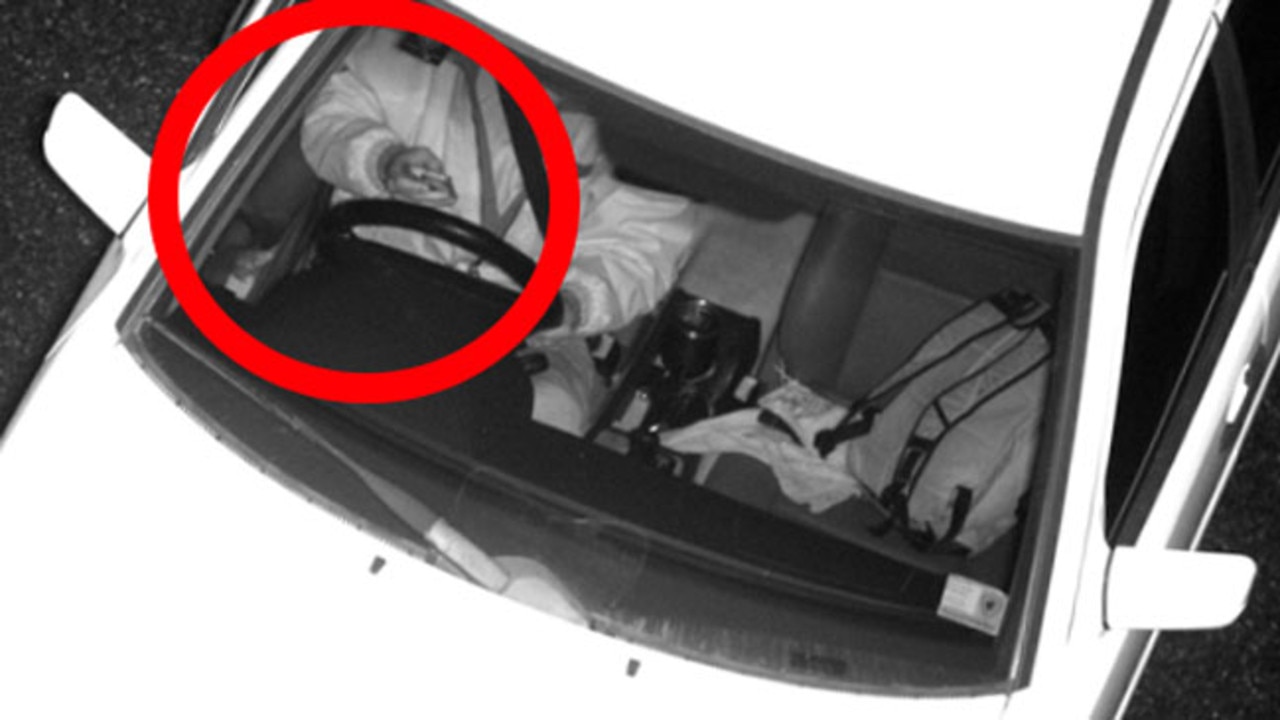Talking Point: Mac Point can let us exploit our superiority in science
A science centre at Macquarie Point could put Tasmania at the front of the world’s sustainability push, say GLENYS JONES and KEITH SAINSBURY

Opinion
Don't miss out on the headlines from Opinion. Followed categories will be added to My News.
THE COVID-19 pandemic has brought a forced halt to business-as-usual in Tasmania, as elsewhere. This pause provides a unique opportunity to reflect on the directions Tasmania could take to secure the best future for our health and wellbeing.
The need for science-savvy leadership and evidence-based policy has never been greater. In her excellent Talking Point, Tasmanian neuroscientist Lila Landowski draws attention to the positive role science can play in shaping a bright future for Tasmania (“The top job we need for success,” August 20). Dr Landowski draws attention to the fact Tasmania has the highest number of scientists per capita of any state yet is the only state without a chief scientist, which is needed to address “the big hole in the state’s plans for a great future”.
She points out science is already an important part of Tasmanian life, with major institutions including CSIRO, IMAS, Antarctic Division, University of Tasmania, and several private companies providing significant employment and a skilled workforce driving world-leading advances.
We share Dr Landowski’s view that Tasmania should be building a future where scientific method and critical thinking are a core part of our society, where science empowers society with policies that are evidence-based and where scientific knowledge and understanding arms Tasmanians with the ability to dissect fact from fiction.
To our minds, it makes good sense to build on the strengths Tasmania already has in science and research capabilities and to grow Tasmania’s opportunities for leadership in science and sustainability. Science can help inform and guide state strategic planning and policy to create the right conditions for nurturing the best possible sustainable future for our collective community wellbeing.

This includes harnessing science to assist multiple industry sectors to flourish sustainably. Think sustainable food, farming, forestry, fisheries, tourism and so on.
Science can be a catalyst for innovation and excellence, and can help advance Tasmania’s opportunities for leadership in key areas. For example, Tasmania has outstanding opportunities for demonstrating leadership and exemplary practice in fields that link and align to the natural world and environmental UN Sustainable Development Goals. Think clean energy (eg sustainable power/clean transport), climate action (ocean/climate research, fire-risk modelling), life on land (global leadership in nature conservation and World Heritage management) and life in water (marine and Antarctic research, sustainable fisheries management). Such leadership strengthens Tasmania’s international reputation and credentials for sustainability, enhances Tasmania’s marketing brand and, importantly, contributes to community and planetary wellbeing.

At a Hobart Town Hall public meeting some years ago, community leaders were expressing their support for a proposed new science, technology, engineering and maths (STEM) centre for Hobart. Former Hobart Lord Mayor Sue Hickey said, “Hobart can be known for being clever and smart with knowledge at our heart”. Renowned science broadcaster Robyn Williams put it this way, “The future is in science related to the natural world and how we live. The science is there, the natural world is there. It’s time for this town, this state to do something different and lead” (Talking Point, November 17, 2017).
Perhaps more than any other place on Earth, Tasmania has the potential to walk the talk in achieving quality sustainable living in harmony with nature. Tasmania is a natural fit for a Science Centre for Sustainability.
We call on the Premier of Tasmania, state and federal ministers for science and technology, science and community leaders, and all stakeholders with an interest in creating Tasmania’s optimal sustainable future, to consider the opportunity and benefits of establishing a Science Centre for Sustainability as part of the planned development of a state-of-the art science precinct at Macquarie Point in Hobart. The Science Centre for Sustainability could support government strategic directions, assist key Tasmanian sectors, and involve communities through expert panels, community forums, decision-support tools and advice for informed decision-making. Such a centre would play a valuable role in community life and would contribute to forging the best possible sustainable future for Tasmania. We encourage the Macquarie Point Development Corporation to consider this concept and engage in discussions with others as appropriate with a view to developing a realistic plan.
Glenys Jones has a background in natural sciences, research and policy and 30 years’ experience in government, universities, CSIRO and private sector. She is a University of Tasmania associate (Geography & Spatial Sciences).
Keith Sainsbury is Associate Professor of Marine Systems Science at the Institute of Antarctic Studies, a member of the Marine Stewardship Council’s Technical Advisory Board and managing director of a consultancy advising on sustainable fisheries management. He was a CSIRO senior principal researcher.
The views here are their own and not necessarily the views of any other entity.


